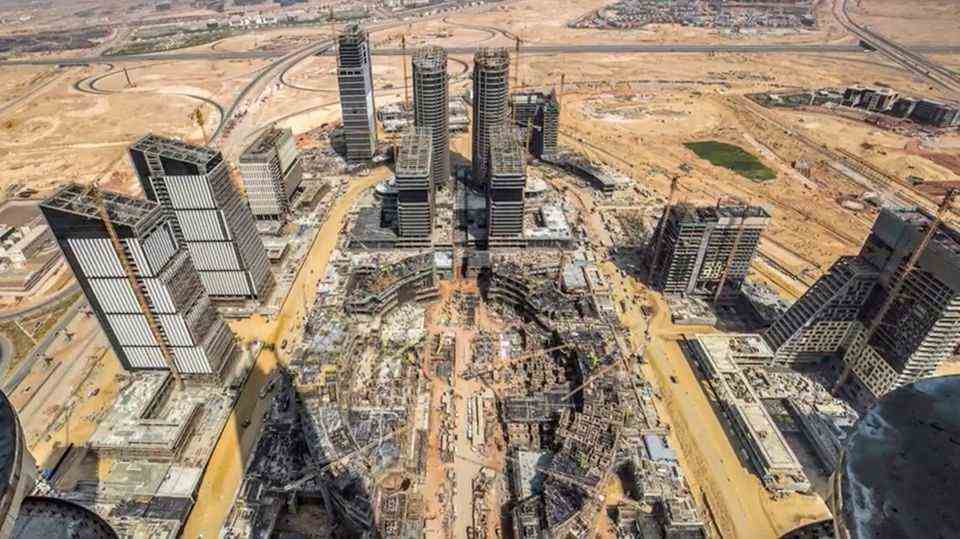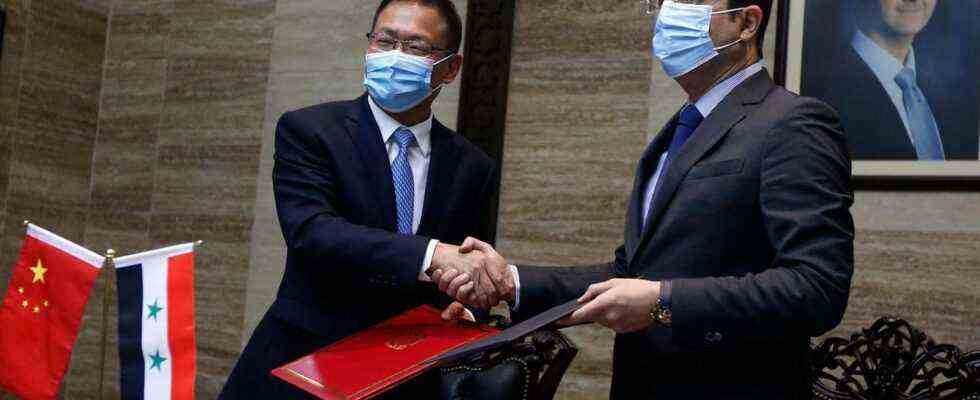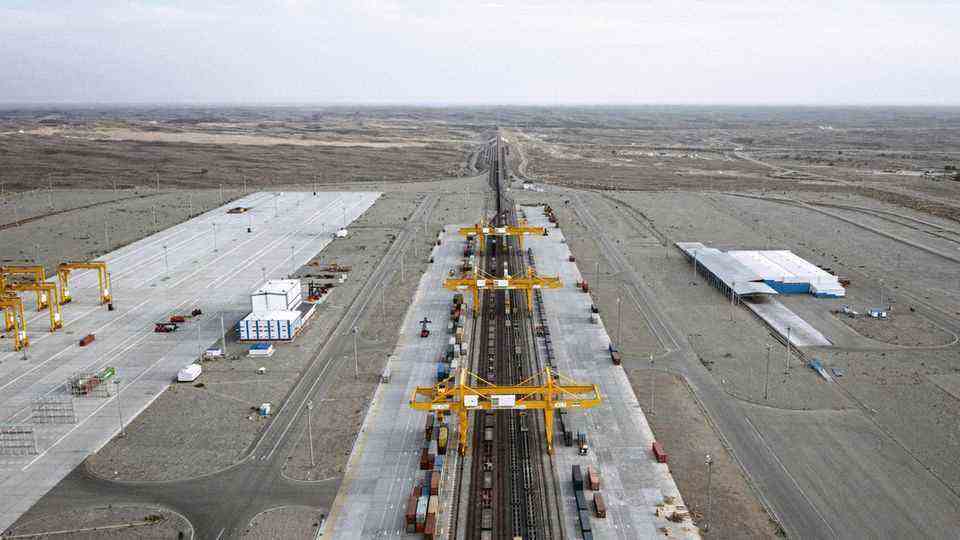money without interference
Investment without democratic reforms: China, the new partner of the Arab world
China sees an interesting partner in Syria. Here, Syrian Health Minister Hassan al-Ghabash (r) and Chinese Ambassador Feng Biao attend an appointment for the delivery of Sinopharm’s Chinese corona vaccine (archive photo)
© LOUAI BESHARA / AFP
The giant empire of China is investing more and more in the countries of the Middle East – without demanding democratic reforms in return. Now Beijing also wants to help with the reconstruction in Syria. Is Europe gambling away its influence in the region?
Houses have burned out, power plants have been smashed, streets are in ruins: many Syrian cities have been completely destroyed after more than ten years of civil war. The country’s economy is devastated and many people live in abject poverty. The government of ruler Bashar al-Assad also lacks the money – for example to repair the destroyed infrastructure. And the West refuses to help with reconstruction until there is fundamental political change in the country.
Financial support should therefore now come from the Far East. There, Syria has identified a source of money that does without tiresome reform requirements: China. The civil war country wants to expand cooperation with the East Asian economic power and also join their “New Silk Road”. A week ago, both states signed a declaration of intent for this.
Syria benefits from China
With the initiative for a “New Silk Road” (Belt and Road, BRI), China supports infrastructure projects worldwide. In recent years, the country has concluded agreements with almost all Arab states. According to the Konrad Adenauer Foundation (KAS), China intends to invest up to 600 billion US dollars (527 billion euros) in the region by 2023. The People’s Republic is already the most important trading partner for many Arab countries.
China, on the other hand, needs its Arab partners for one thing above all: to meet its growing energy needs. The second largest economy is urgently dependent on oil imports from the Gulf States, for example. Despite its increasing commitment, the country wants to avoid becoming involved in the region’s conflicts. “China has a very clear strategy: No interference in internal affairs,” says the head of the Middle East and North Africa at KAS, Canan Atilgan, of the German Press Agency.
That is why the economic powerhouse does not tie its aid to democratic reforms or the fight against corruption. “For many countries in the Middle East and North Africa, this Chinese development strategy is a highly welcome alternative to the values-based European model,” said Atilgan. Countries that would otherwise find it difficult to obtain international aid also benefit from the multi-billion dollar Chinese project. For example Syria.
Billion investments in Egypt
The leadership there celebrates China’s support for reconstruction as “overcoming the unilateral compulsory sanctions against Syria”. What is meant are the sanctions of the West. The USA and Europe want to put pressure on Assad and his brutal power elite, who continue to torture and kill their own people.
In return for China’s non-interference, the Arab states have also been reluctant to criticize – even China’s handling of the Uyghur Muslim minority in the north-west region of Xinjiang. Polls show that many people in the Arab world are open to relations with China. On the other hand, they are now rather skeptical about relations with the USA.
In Egypt alone, China is investing billions in infrastructure, energy, telecommunications and Suez Canal projects. President Abdel Fattah al-Sisi has visited China six times since 2014 and signed at least 25 bilateral agreements.

Khaled Desouki / AFP
China has recognized the country’s potential and opportunities
Critics fear that China’s involvement in the region could strengthen authoritarian states in the long term. Resources gained from joint projects are likely to find their way into the pockets of the powerful. This reinforces social inequality, writes the European Council of Foreign Affairs (ECFR) think tank on its website. The export of surveillance technology also plays into the hands of authoritarian governments. According to the ECFR, China’s influence in the region is by no means as great as some Arab states would like the rest of the world to believe.
The more companies from China become active in the region, the more difficult it will be for the country to maintain its restraint there. Because economic power must protect its own interests. The think tank ECFR therefore assumes that the country will work more closely with Europe in the future to de-escalate conflicts in the Arab world. So there is still room for Europe to push through its own goals.
If the West wants it. With the exception of the migration issue, according to Atilgan, the region has meanwhile moved out of the focus of Europe: “There are no attractive offers for cooperation.” According to the scientist, if the countries of Europe want to help shape the future in the Middle East, they must create a new narrative for the region in addition to a wide range of initiatives. “A counter-concept to the current picture of the Arab world with many problems, as a buffer zone or border.” The countries also wanted to be perceived with potential and opportunities. China has recognized that.


